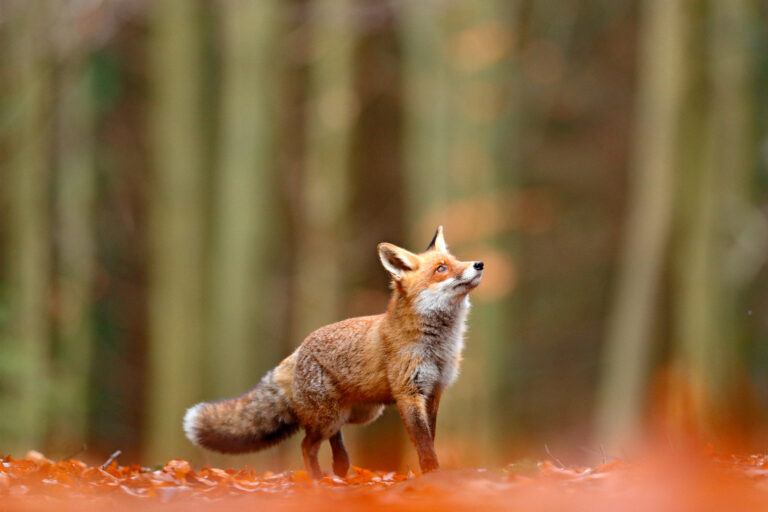This month may seem too icy and cold to think about nesting but, surprisingly, there are a fair few birds who are early starters: The humble long-tailed tit busies itself as early as February gathering bits of moss, lichen and cobwebs to construct its new home, lining it with soft feathers ready to wow a female. The whole process can take several weeks.
The heron, in contrast is one of nature’s efficient recyclers, reusing old sticks and repairing its nest from the previous year. It is a major feat of engineering and needs to be, with its chicks remaining in the nest for a good eight weeks, getting heavier by the day from all the fish and amphibians they are fed.
Listen out for the fox’s mating call, which can sometimes sound quite eerie, rather like a cat being strangled! Whilst they can mate pretty much all year round, the peak of the mating season is in December and January, with the cubs born in March when the female will stay in the earth whilst the male brings back food for the family.
Snowdrops (of which there are around 75 different varieties) and the brightly coloured crocus, begin to push up their heads towards the lukewarm sun. These delicate blossoms provide much needed food for early pollinators such as honey bees and the queen bumblebee. Planting your NatureArk® with these bulbs provides a much-needed food source for these fast-dwindling populations.
Do: Clean out nest boxes to give those not so early starters, a bit of a head start next month!
Get involved: The 14th-21st February marks National Nest Box week. Take a look at The British Trust for Ornithology website below:
National Nest Box Week | BTO – British Trust for Ornithology
Author: Terry Smithson BSc in Zoology, MSc in Ecology
Terry is our in-house ecologist. He’s worked in the nature conservation sector for over 25 years and loves all things wildlife, especially hoverflies, beetles, mammals and birds. He’s helped design our BioScapes products so they maximise the recovery of wildlife and he’s happy to offer advice to individuals, schools and businesses on how to boost biodiversity.

